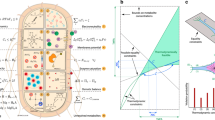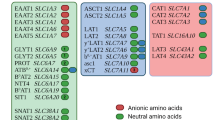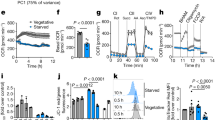Abstract
THERE appears to be a growing amount of misunderstanding about the different hypotheses so far offered in the endeavour to account for the accumulation of ions by living cells. As an example I quote from a recent paper by Asprey1: “It is noteworthy that Briggs2 has advanced a theory, thermodynamically sound, showing how the accumulation of solutes in the cells of Valonia and Nitella can be explained” This not only affirms the adequacy of Briggs's explanation, but also accepts his supposed proof that previously proposed theories are thermodynamically unsound. Neither proposition is correct.
This is a preview of subscription content, access via your institution
Access options
Subscribe to this journal
Receive 51 print issues and online access
$199.00 per year
only $3.90 per issue
Buy this article
- Purchase on Springer Link
- Instant access to full article PDF
Prices may be subject to local taxes which are calculated during checkout
Similar content being viewed by others
References
Asprey, G. F., Proc. Roy. Soc., B, 112, 451–72 1933.
Briggs, G. E., ibid., 107, 248–69 1930.
Brooks, S. C., Protoplasma, 8, 339–412 1929.
Author information
Authors and Affiliations
Rights and permissions
About this article
Cite this article
BROOKS, S. Accumulation of Ions by Living Cells. Nature 132, 97–98 (1933). https://doi.org/10.1038/132097b0
Issue Date:
DOI: https://doi.org/10.1038/132097b0
Comments
By submitting a comment you agree to abide by our Terms and Community Guidelines. If you find something abusive or that does not comply with our terms or guidelines please flag it as inappropriate.



